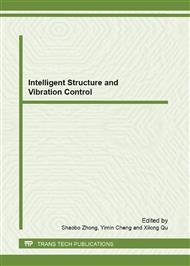p.135
p.140
p.145
p.150
p.155
p.160
p.166
p.171
p.176
Analysis on Ecological Principles in Macau Urban Design
Abstract:
Macao managed for over 400 years to develop Iberian characteristics in the city together with the Chinese characteristics; it has formed an organic urban fabric reflecting ecological principles original from different places, that could easily to be adopted under tropic circumstance, The study focus on the researches of how these elemental principles should be, and how to develop and maintain those ecological principles. Survey was done on existing data from three different sources, namely 1) graphic images and maps, 2) documents archives, 3) archeological findings. The paper contributed for the knowledge would not only helpful to Macau modern urban renewal, but also benefit to relevant projects on ecological city plan.
Info:
Periodical:
Pages:
155-159
DOI:
Citation:
Online since:
February 2011
Authors:
Price:
Сopyright:
© 2011 Trans Tech Publications Ltd. All Rights Reserved
Share:
Citation:


